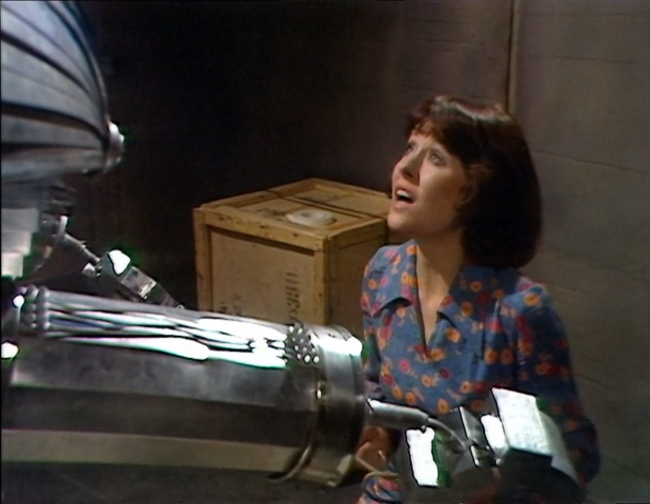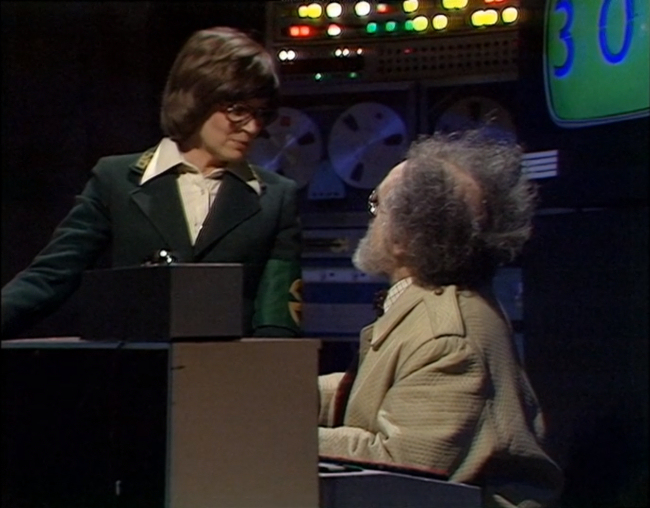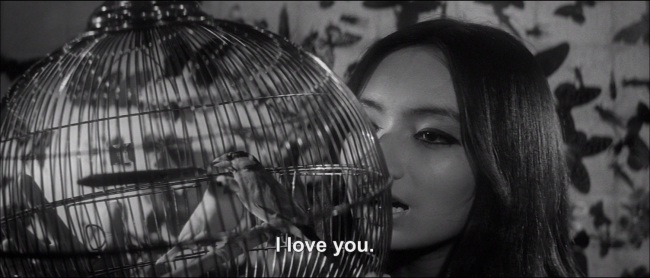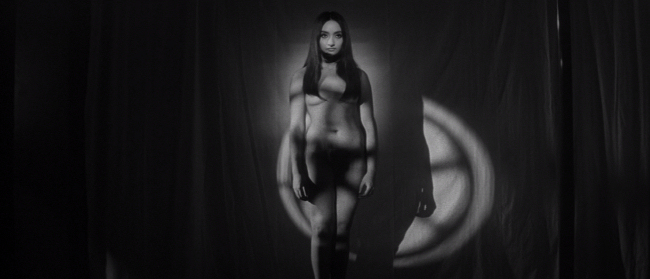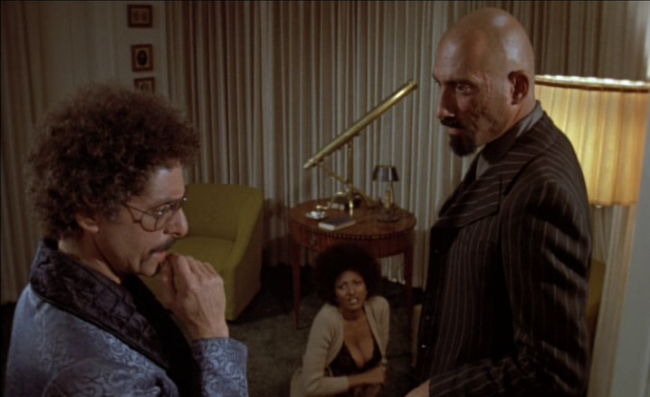
For the first time ever, Shirley Jackson's 1962 novel, We Have Always Lived in the Castle, was adapted to film in 2018 and released a couple months ago. Or adapted to NetFlix, anyway, which is more or less the same thing nowadays. Generally NetFlix films look like their budgets are as low as they are. We Have Always Lived in the Castle isn't a story that demands a big budget and production values on the film don't look especially shoddy but I've been trying to put my finger on how to explain just how cheap it feels. Mainly it feels like the filmmakers and performers didn't quite think the project through or didn't feel the need to.
Like a few other works by Shirley Jackson, We Have Always Lived in the Castle is about an old family, in this case the Blackwoods, who live in a large manor connected to a village community. As the title implies, there's an old world, feudal aura to the setup though story is set in the United States. The book is a first person narrative told from the perspective of the youngest living Blackwood daughter, Merricat, who now lives alone in the manor with her elder sister, Constance, whom she adores, and their uncle, Julian, who is confined to a wheelchair and suffers from a mental impairment that, among other things, gives him trouble accessing short term memory.

Julian is played by Crispin Glover in the film, the best casting, but I think he could have done with some more direction. He generally comes off as just Crispin Glover in a wheelchair, but considering his natural oddness, maybe that's good enough.

The main problem with the film is in the two female leads, Taissa Farmiga and Alexandra Daddario as Merricat and Constance Blackwood, respectively. Merricat as a narrator is fascinating, being a character who simultaneously has an instinct for arranging information for the reader and also has a tendency to abruptly divert the narrative to details she forgets or erroneously deems unnecessary to explain the pertinence of. She introduces herself in the book's first paragraph:
My name is Mary Katherine Blackwood. I am eighteen years old, and I live with my sister Constance. I have often thought that with any luck at all I could have been born a werewolf, because the two middle fingers on both my hands are the same length, but I have had to be content with what I had. I dislike washing myself, and dogs, and noise. I like my sister Constance, and Richard Plantagenet, and Amanita phalloides, the death-cup mushroom. Everyone else in my family is dead.
Despite this last sentence, she brings up her uncle Julian a page later, an omission likely intended by Jackson to suggest something about Merricat. The film opens with Merricat in her bedroom writing this introduction but the film leaves out the business about werewolves, washing herself, and Richard Plantagenet, though later we see her listening to a record of a performance of Richard III. The opening narration instead inserts bits from elsewhere in the novel to provide a concise establishment of setting.
My name is Mary Katherine Blackwood. I am eighteen years old, and I live with my sister Constance. She is the most precious person in the world. The Blackwoods have always lived in this house. We have never done anything to hurt anyone. We put things back where they belong. And we will never leave here no matter what they say. Or what they do to us. Never. But a change is coming and nobody knows it but me.
It's an opening that trusts the interpretive skill of the viewer a lot less than Jackson's. It's like those quick, miniature trailers preceding actual trailers on YouTube because people's attention spans are too short even for trailers now and they need to be told in clear, simple terms what they're going to be seeing. In the process, we lose a lot of Merricat's character as it's developed through her voice, something Farmiga's flat, one layer performance doesn't make up for.
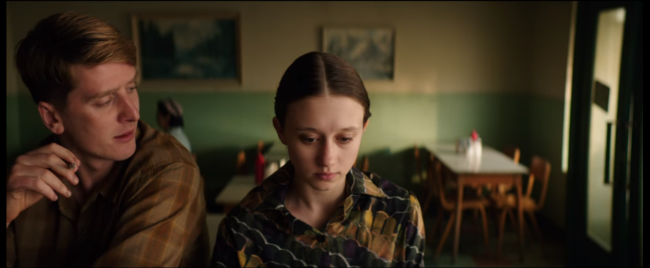
It's Merricat's job to go into town for supplies. The film lacks her commentary on people and houses she sees as she passes, focusing entirely on her perception of the hatred everyone has for the Blackwoods, and consequently the village comes off as having far less character and Merricat's conception of it a lot narrower. As in the book, she stops in a diner for coffee where she's hassled by two men. In the film, one of the men talks about how he fixed a porch step at the Blackwood house and was never paid for it. Merricat says that her father had proclaimed he would not pay for shoddy workmanship.
In the book, this exchange is significantly different.
"Me," Dunham said, "I can always tell people I fixed their broken step once and never got paid for it." That was true. Constance had sent me out to tell him that we wouldn't pay carpenter's prices for a raw board nailed crookedly across the step when what he was supposed to do was build it trim and new. When I went out and told him we wouldn't pay he grinned at me and spat, and picked up his hammer and pried the board loose and threw it on the ground. "Do it yourself," he said to me, and got into his truck and drove away. "Never did get paid for it," he said now.
The movie's version makes significant changes for the characters of Merricat, Constance, and their father. This brings a villainous cast to the Blackwood patriarch early, Merricat is portrayed as more confrontational in the film by actually speaking the information instead of merely informing the reader, and it's one of many points in the film that makes Constance a far more passive character than she is in the book.

Daddario plays Constance as a perpetually grinning 1950s housewife stereotype. We're told she cleans and we see the house is immaculate but its difficult to imagine this perfectly coiffed and laundered vision single handedly doing all the dusting, mattress turning, sweeping, vacuuming, taking care of Julian, making everyone's meals--she should look exhausted or if she doesn't there should be something off about her. Merricat, in the book, does describe her as a "fairy princess" and says that "even in the worst time she was pink and white and golden, and nothing had ever seemed to dull the brightness in her." But allowances ought to be made for Merricat's frame of reference and adoration. Again, this speaks to a failure on the part of the filmmakers to exhibit anything more than the most superficial interpretation.
The colours in the film are really nice and I love the floral, William Morris-ish wallpaper in the house. But altogether it's an unimaginative and bloodless adaptation of a brilliant book.





